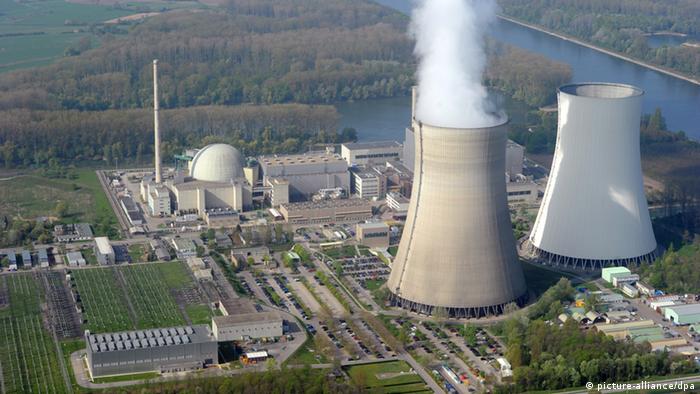Germany shuts down atomic plant as nuclear phase-out enters final stretch
The Philippsburg power station is one of the only plants still operating in the southern state of Baden-Württemberg. Germany has vowed to start decommissioning every nuclear power facility by the end of 2022.

Operators began shutting down the Philippsburg nuclear power plant in southern Germany on Tuesday, as the country puts into motion its plan to begin decommissioning all 17 of its atomic energy facilities by the end of 2022.
After 35 years on the grid, Block 2 of the Philippsburg station was fully turned off. Neckarwestheim 2, the other remaining nuclear plant in the southwestern state of Baden-Württemberg, is not set to be turned off until the end of the nuclear phase-out plan.
Philippsburg had previously supplied 6% of Baden-Württemberg's energy. However, nuclear power has long been unpopular in the region, which has a Green party leader in State Premier Winfried Kretschmann.
The 2011 Fukushima nuclear disaster in Japan led to widespread anti-atomic-power protests across Germany. Two months after the accident, Chancellor Angela Merkel announced that all plants would be closed over the next decade, making Germany the second country after Italy to shut down all of its atomic energy stations.
The German Federation for the Environment and Nature Conservation (BUND) welcomed the news. A BUND spokesman said the group hoped to see the end of nuclear power being "conjured up again and again as a supposed healing charm and climate savior."
From the point of view of safety, Wolfram König — who heads the German government's office for the phase-out — welcomed the fact that more nuclear power stations were being taken offline. However, König also warned that the country still faced a great "challenge" in trying to phase out both coal and atomic energy at the same time.
es/rc (dpa, AFP)
DW RECOMMENDS
What happens to nuclear waste from power plants?
African countries looking to invest in nuclear energy as a source of clean electricity should consider Europe's struggles with disposing of radioactive waste. (13.11.2019)
Germany demolishes cooling tower of former nuclear power plant
A cooling tower emblematic of Germany's nuclear aversion has been toppled near Koblenz. Seven reactors are still operational in Germany, with the last due to be phased out in late 2022 amid a drive to renewables. (09.08.2019)
Date 31.12.2019
Related Subjects Fukushima, Germany
Keywords Germany, nuclear power plant, Fukushima
Feedback: Send us your feedback.
Print Print this page
Permalink https://p.dw.com/p/3VXPc
RELATED CONTENT

France shuts down first reactor of Fessenheim nuclear plant near German border 22.02.2020
French energy company EDF has confirmed that it has turned off one reactor of its oldest nuclear power plant. The plant, located directly on the border to Germany, has drawn frequent protests in recent years.

Fukushima: How the ocean became a dumping ground for radioactive waste 11.03.2020
The nuclear disaster at Fukushima sent an unprecedented amount of radiation into the Pacific. But, before then, atomic bomb tests and radioactive waste were contaminating the sea — the effects are still being felt today.

Germany demolishes cooling tower of former nuclear power plant 09.08.2019
A cooling tower emblematic of Germany's nuclear aversion has been toppled near Koblenz. Seven reactors are still operational in Germany, with the last due to be phased out in late 2022 amid a drive to renewables.
